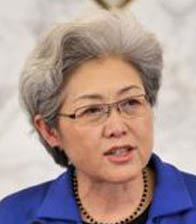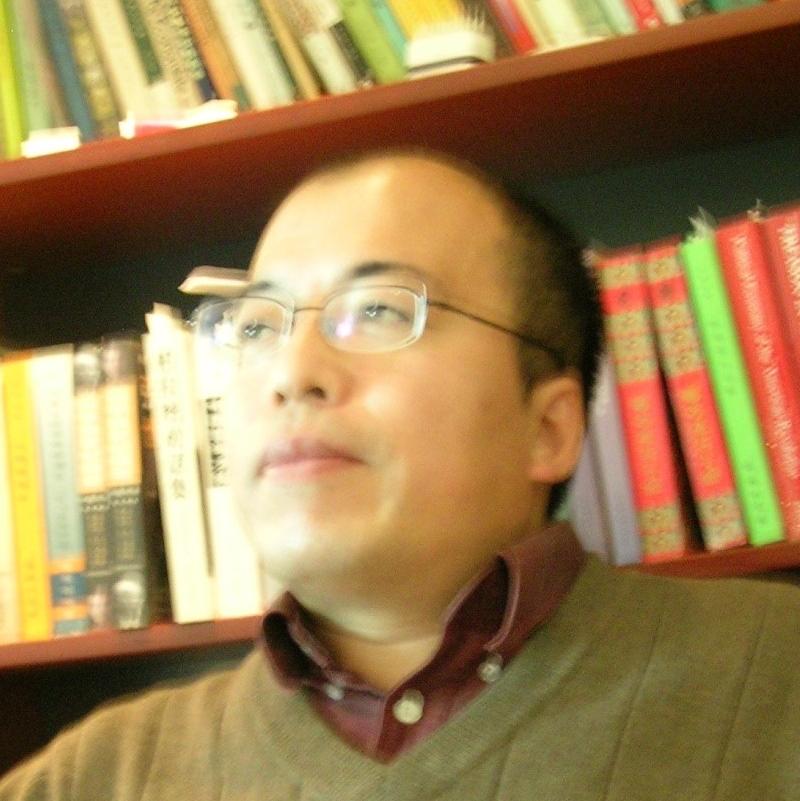The following is an interview with Fu Ying, Member of the Standing Committee and Chairperson of the Foreign Affairs Committee of the 12th National People’s Congress of China. Fu Ying talks to China-US Focus on some of the issues raised during the Munich Security Conference.
1. China’s power is rising. But what meets the eye is mostly hard power. Do you see China’s soft power catching up? In what form?
I am glad that the world is paying attention to China’s soft power. China’s soft power is rooted in the country’s profound culture and history, and now is nourished by a prospering society. President Xi Jinping put forward the idea of a “Chinese dream” to attain the rejuvenation of the nation, the very aim of which is to enable a better life for the 1.3 billion Chinese in a society where hard work is duly rewarded, the elderly cared for, the young educated and the sick properly treated. The realization of family or personal dream will help to make the state prosperous and vice versa.
The charm of the Chinese dream is for every ordinary person to have the right and possibility to live a decent life, which is also the simplest and common pursuit of the human being. This is the dream sharing by the greatest number of people in all developing countries who have long been at the periphery of world industrialization. This explains why China’s success in lifting poverty is so appealing to the world and where the influence of Chinese soft power in modern time comes from.
The Chinese dream is not an exclusive endeavor. President Xi has elaborated on ‘Yiliguan’ in Chinese or, in English, the right approach to responsibility and interest. This means to pursue one’s interests without compromising those of others. With our neighbors, he emphasized the need to share and treat neighbors with amity, sincerity and to seek mutual benefit and inclusiveness. These, together with the long-standing policy of peace and cooperation all add to contemporary China’s soft power in the region and beyond.
China is not a country that seek to dominate and therefore does not develop a soft power to rule others. It will be contributing to peace, development and cooperation. But China does need to learn to better inform the world of its thinking and policies.
2. Is China seeking hegemony in East Asia? Or will it ever be a hegemon?
Hegemonism is a loaded word reminiscent of the past in China’s political dictionary. It implies imposing one’s will on others, which we do not approve of and have even less desire for ourselves.
60 years ago, China, together with India and Myanmar, promoted the five principles of peaceful coexistence, including mutual respect of sovereignty and territorial integrity, mutual non-aggression, non-interference in other’s internal affairs, equality, mutual benefit and peaceful coexistence. These principles still guide China’s foreign policy, and I see no reason for that to change.
3. But why are disputes with your neighbors, including but not limited to Japan, flaring up all at once?
Dispute over territory is not a rare issue in the world, especially among countries that were once colonized. China has 14 neighbors by land and 6 by sea. There have been many such disputes inherited from a previous time.
We have successfully solved most land border disputes and the few left outstanding are in tranquility. Disputes at sea are more complicated and are difficult to resolve. We have never given up our sovereignty claims, but have always tried to solve the disputes through peaceful negotiation with the other claimants and shelve differences and seek joint development before final solutions are reached. China worked out the Declaration of Code of Conduct with ASEAN countries, which has helped to keep the situation under control. This reflects China’s strong emphasis and endeavor on maintaining peace and stability in the region.
It takes two to tango. For the policy to last, other parties also need to adhere to what was agreed upon. When some countries provoke the situation at the risk of breaking the status quo, China must respond and take firm action to stop it, in order to defend not only our national interest but also regional stability, and to prevent the situation from further escalating.
4. Many are talking about the eventuality of a war between China and Japan? How likely is that?
Talking about conflicts and wars is eye catching.
Indeed, wars dominated international politics for centuries and humanity paid dearly. But now we are in a different age, one of peace and development as Deng Xiaoping described in the late 1970s. It was with that as the background that China started the drive towards reform and opening up to the outside world. Deng’s judgment is still valid. President Xi also emphasized recently that peace, development and cooperation are the world’s central theme.
For any dispute, dialogue should be the first choice. That’s what China believes in. Look at the experience of ‘military solutions’ over the years – how much have they actually resolved?
The Diaoyu Islands dispute is not new. It only came under the spotlight over the past two years after the Japanese Government under former Prime Minister Noda upset the status quo by nationalizing the islands. China had to respond to the provocative activities by, for example, sending civilian maritime surveillance vessels to the adjacent waters to indicate China’s sovereignty and claims over the islands.
You asked about the possibility of conflict. Both sides said that they prefer dialogue, but the Japanese government totally denied there were any disputes to talk about and therefore made it difficult to move forward. One more serious problem is that the Japanese side is twisting the truth and using the situation to building up tension, which is not moving the matter in the right direction at all.
5. Are the rocks worth all the trouble? What are the prospects for dialogue for the dispute?
The Diaoyu Islands carry a lot heavier significance than a few rocks to us. They touch on the deepest wound of the Chinese people. Japan practically stole it from China 120 years ago during the Jiawu War. The facts were well documented not only in China but also in Japan.
Legally speaking, the sovereignty of the islands was returned to China after WWII according to the Cairo Declaration and the Potsdam Proclamation. The current state of dispute is also a product of the Cold War.
When establishing diplomatic relations, China and Japan shelved the dispute, in words of Mr. Deng Xiaoping it could be left to the later generations who might be smarter in figuring out a solution, and the issue became dormant. So you can imagine why the Chinese public had such a strong reaction when the Japanese government decided to upset the whole arrangement and declared that there was no dispute at all. It was a very arrogant move.
Many of the business people I have encountered say they don’t feel like promoting business with Japan. The impact on bilateral trade was obvious as it came down by 5.1% last year when China’s general external trade went up by 7.6%.
That being said, the diplomatic solution is still the preferred option. Since Japan has unilaterally taken the wrong step and started the problem in the first place, it should take the responsibility to reverse wrongs. The current problem is that now the two sides are not on the same platform. How can we start any serious dialogue if they don’t even see that there is a dispute and are unwilling to solve the problem.
6. Can’t China move on from the past grievances and let history be history?
Some Japanese leaders’ view of the history of aggression is a big problem. It’s been almost 70 years since the end of WWII, and it’s astonishing to see people like Prime Minister Abe coming up with all kinds of excuses to deny Japan’s war crimes.
I have visited many museums on the atrocities of the Japanese army during the war in China, e.g. in Nanjing and Tengchong. I was also at the site where the Japanese 731 unit left piles of chemical weapons to be disposed of. It’s hard to understand how anyone could turn a blind eye to these facts? What kind of value they stick to and where are their consciences?
Prime Minister Abe visited the Yasukuni Shrine where war criminals are glorified. Do we know if he said much or expressed much for those who suffered from the atrocities of Japan’s war crimes? Paying tribute to 14 notorious Class A war criminals is beyond what any sensible conscience would allow, and to say it was in the name of peace is very ironical and desecrates the peace.
This is a big issue that concerns peace and stability in Asia.
The problem is not that China can not move on from the past grievance, but that Japan is unwilling to relieve itself from the burden of war crime. Contrasting to European leaders’ recent statements and review on the cruelty of WWII, it is sad that the Japanese leaders, with their ambiguous attitudes, still try to conceal its aggression history. That‘s why Japan can not make real reconciliation with its neighbors and become a constructive power of Asia.
As for China, we have been successful in our peaceful development and such distractions will not sway China from its right direction.
7. A nuclear North Korea is not in China’s interest either. What can China do to disarm North Korea’s nuclear program?
Resolving the Korean Peninsular nuclear issue is very important for China, and for regional security as well. Our position includes the following three points: one, a nuclear free peninsular; two, peace and stability; three, peaceful resolution. China has played a very active role on the issue through the UN Security Council and the six party talks.
This issue is very complicated and it has been long standing. Even today which is 60 years after the war, there is still no peace accord on the Peninsular, but an armistices. Trust is extremely thin. To find solution, there need patience and consistent efforts. We all know that a region is secure as much as its weakest link. For any solution to work, there has to be an arrangement that covers the security concerns of all parties, including that of the DPRK.
When talking about the Korean Peninsular, I wonder if we need not to pay more attention to the human dimension. The DPRK is China’s neighbor just across the Yalu River. I’ve traveled to Pyongyang many times, sometimes by road, passing through towns and villages. I saw faces of old people, women and children and I believe they also long for peace and an improvement in their living conditions. During my last visit, I did see more supplies in the markets, which means that there is some improvement in the economy. Developing nuclear weapons or stimulating conflict is certainly not in their interest, nor in anyone’s interest at all.
8. Does China see a threat in the US pivoting to Asia?
All Americans with an official background – leaders, Congressmen, diplomats – have said affirmatively that the US does not have a strategy to contain China. I think we should take their word for it.
China and the US are deeply engaged with one another, and at the current rate US will soon be our first trading partner and mutually investment is growing fast. We both carry big weight in each other’s foreign policy. There are around 90 regular consultations in all fields and the common ground is constantly growing. The meeting President Xi Jinping had with President Obama at the Annenberg Retreat last summer was very unique and significant. It laid the groundwork for trust between the two leaders, and set the tone for the direction of the relations between the two countries.
To avoid going down the old path of power conflict, President Xi proposed that the two countries need to build a new model of major-country relations characterized by no conflict, no confrontation, mutual respect and mutually beneficial cooperation. President Obama responded positively.
To operationalize the idea, both China and the US need to build trust by addressing issues of common concern. It may take time. The rest of the world stands to benefit from our success and their support is very much needed and welcome.
9. But you are competing with the US for influence in East Asia, aren’t you?
Many East Asian countries compare themselves to green grass and do not wish to see China and US fight like elephants on the grassland. The kind of strategic approach that China and the US take towards each other will have a strong bearing on the region.
President Xi Jinping has said that the Pacific Ocean is wide enough to hold both China and the United States. That‘s what we bear in mind dealing our relations with the US. There is more that unites us than divides us. We both need the region to be stable and prosperous.
Sometimes there are differences and concerns. I hear US think-tank scholars comment that the US has doubts about China and needs to hedge. In China too there is talk of concerns about US intentions.
China will stick to the path of peaceful development and we will not change our policy of safeguarding the peace and stability of East Asia. Last year, the Chinese leaders visited many neibouring countries, bringing up a series of new cooperation initiatives. We welcome the US join us in regional cooperation.
I think it’s necessary for China and the US to work patiently on one thing after another to build up trust and cultivate the habit of cooperation.
East Asia is where the interests of China and the US converge the most. If we can’t make our relations work here, how can it work elsewhere?
Fu Ying, Member of the Standing Committee and Chairperson of the Foreign Affairs Committee of the 12th National People’s Congress of China.




